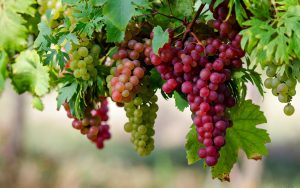 At both of the Divine Liturgies (9:00 a.m. and 7:00 p.m. in English) Father Iura will bless grapes and other fruit for the Feast of the Transfiguration, Monday, August 6. It is a holy day.
At both of the Divine Liturgies (9:00 a.m. and 7:00 p.m. in English) Father Iura will bless grapes and other fruit for the Feast of the Transfiguration, Monday, August 6. It is a holy day.
Please bring grapes and fruit blessings to observe the feast of the Transfiguration of the Lord.
Why bless grapes on this day?
On the mountain You were transfigured, O Christ God, and Your disciples beheld Your glory as far as they could see it; so that when they would behold You crucified, they would understand that Your suffering was voluntary, and would proclaim to the world that You are truly the Radiance of the Father (Kontakion for the Transfiguration).
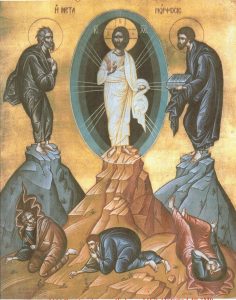 The Transfiguration of Our Lord, as testified to in Divine Revelation shows us our ultimate destiny as Christians: the ultimate destiny of all men and all creation to be transformed and glorified by the splendor of God Himself.
The Transfiguration of Our Lord, as testified to in Divine Revelation shows us our ultimate destiny as Christians: the ultimate destiny of all men and all creation to be transformed and glorified by the splendor of God Himself.
The feast of the Transfiguration on Monday, August 6th, is a summer celebration and expectation of Great Lent, of the Eucharist, the Cross, and the Resurrection. The Church blesses grapes, as well as other fruits, on the Transfiguration as a beautiful sign of our final transfiguration of all things in Jesus Christ. This is a very ancient observance. We bless grapes because we bless God! The gesture of bringing and blessing of grapes points to the ultimate flowering and fruitfulness (generativity) of all creation in the Paradise; here we all will be transformed in the garden by the glory of the Lord.
Bunches of grapes are symbols of completion —especially experienced in the completion of the growing season— which has finally brought things to fruition. Christians see in the grapes the biblical image of Jesus as the Vine. We also understand in the blessing of grapes and fruit high praise for God the Creator of all good things of the universe. So the connection between creation and Eucharist is present in these holy actions on the Transfiguration feast.
In the Bible we read of the custom of bringing fruit to the temple for consecration (Genesis 4:2-4; Ex 13:12-13; Numbers 15:19-21; Deuteronomy 8:10-14). In the New Testament the 12 Apostles brought this tradition to the Church (1 Corinthians 16:1-2). Later in the early centuries of Christianity, the faithful brought to the Church fruits and vegetables of the new harvest: bread, wine, oil, incense, wax, honey, etc. Some of the offerings were taken to the altar, and the balance made available to needs of the clergy and the poor.
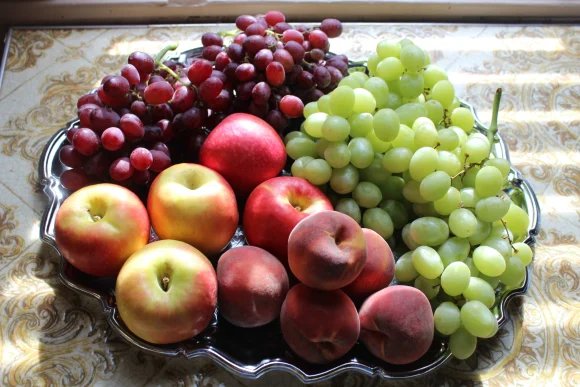
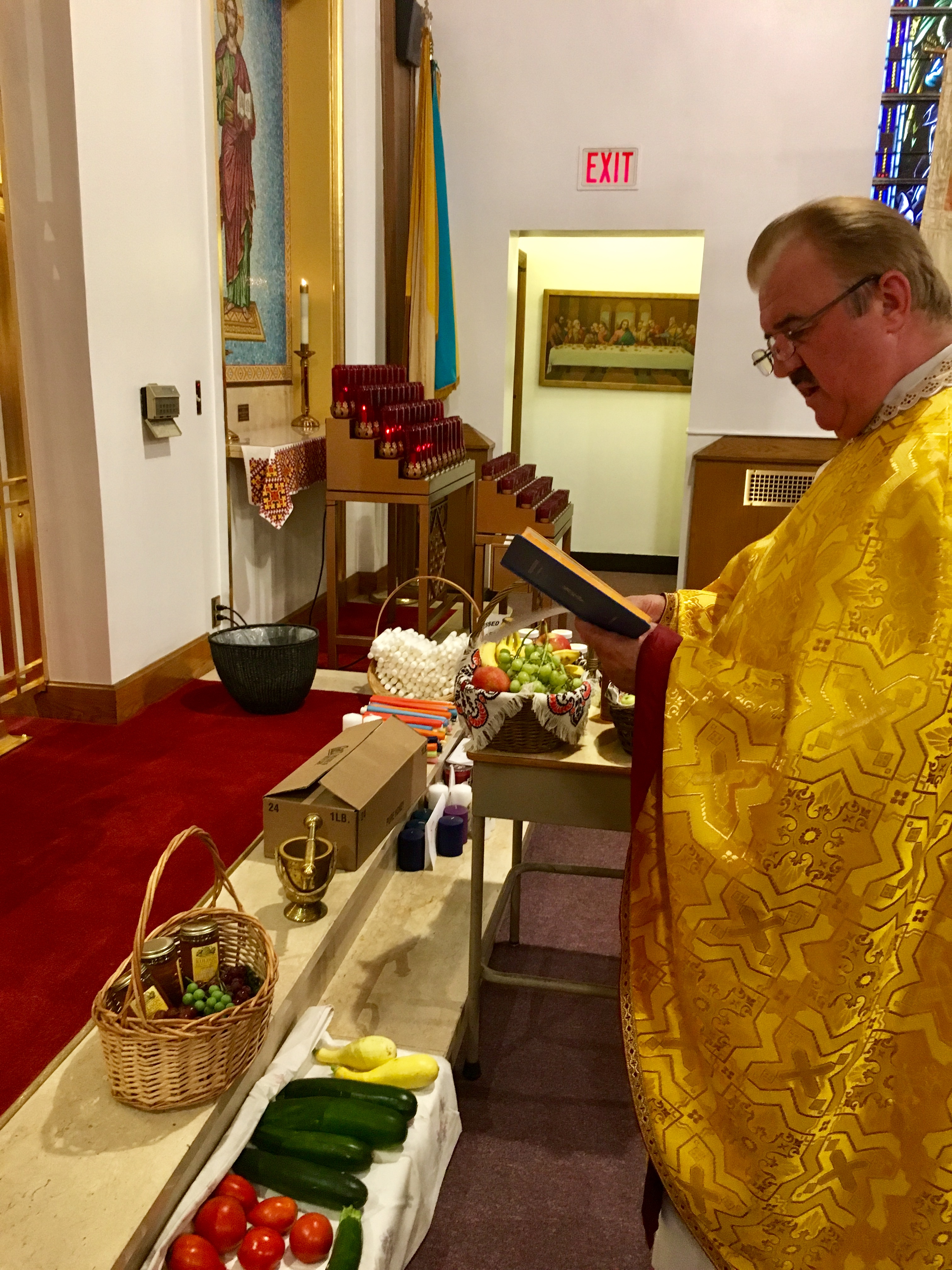 At the conclusion of the Divine Liturgy for the feast of the Transfiguration of the Lord, Father Iura blessed grapes, harvested fruits and vegetables and honey.
At the conclusion of the Divine Liturgy for the feast of the Transfiguration of the Lord, Father Iura blessed grapes, harvested fruits and vegetables and honey. At both of the Divine Liturgies (9:00 a.m. and 7:00 p.m. in English) Father Iura will bless grapes and other fruit for the Feast of the Transfiguration,
At both of the Divine Liturgies (9:00 a.m. and 7:00 p.m. in English) Father Iura will bless grapes and other fruit for the Feast of the Transfiguration,  The Transfiguration of Our Lord, as testified to in Divine Revelation shows us our ultimate destiny as Christians: the ultimate destiny of all men and all creation to be transformed and glorified by the splendor of God Himself.
The Transfiguration of Our Lord, as testified to in Divine Revelation shows us our ultimate destiny as Christians: the ultimate destiny of all men and all creation to be transformed and glorified by the splendor of God Himself.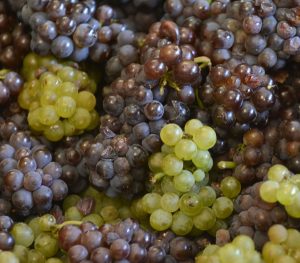 At both of the Divine Liturgies (9 and 10:30am) Father Iura will bless grapes and other fruit on Transfiguration Sunday, August 6.
At both of the Divine Liturgies (9 and 10:30am) Father Iura will bless grapes and other fruit on Transfiguration Sunday, August 6.